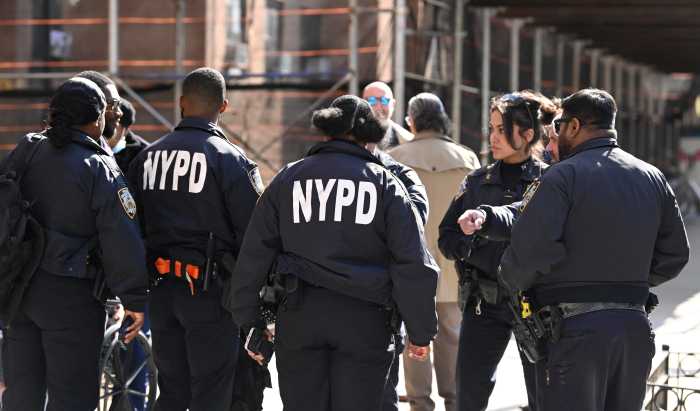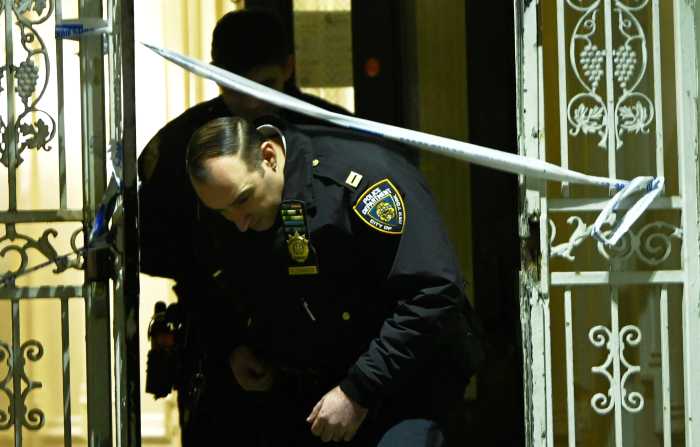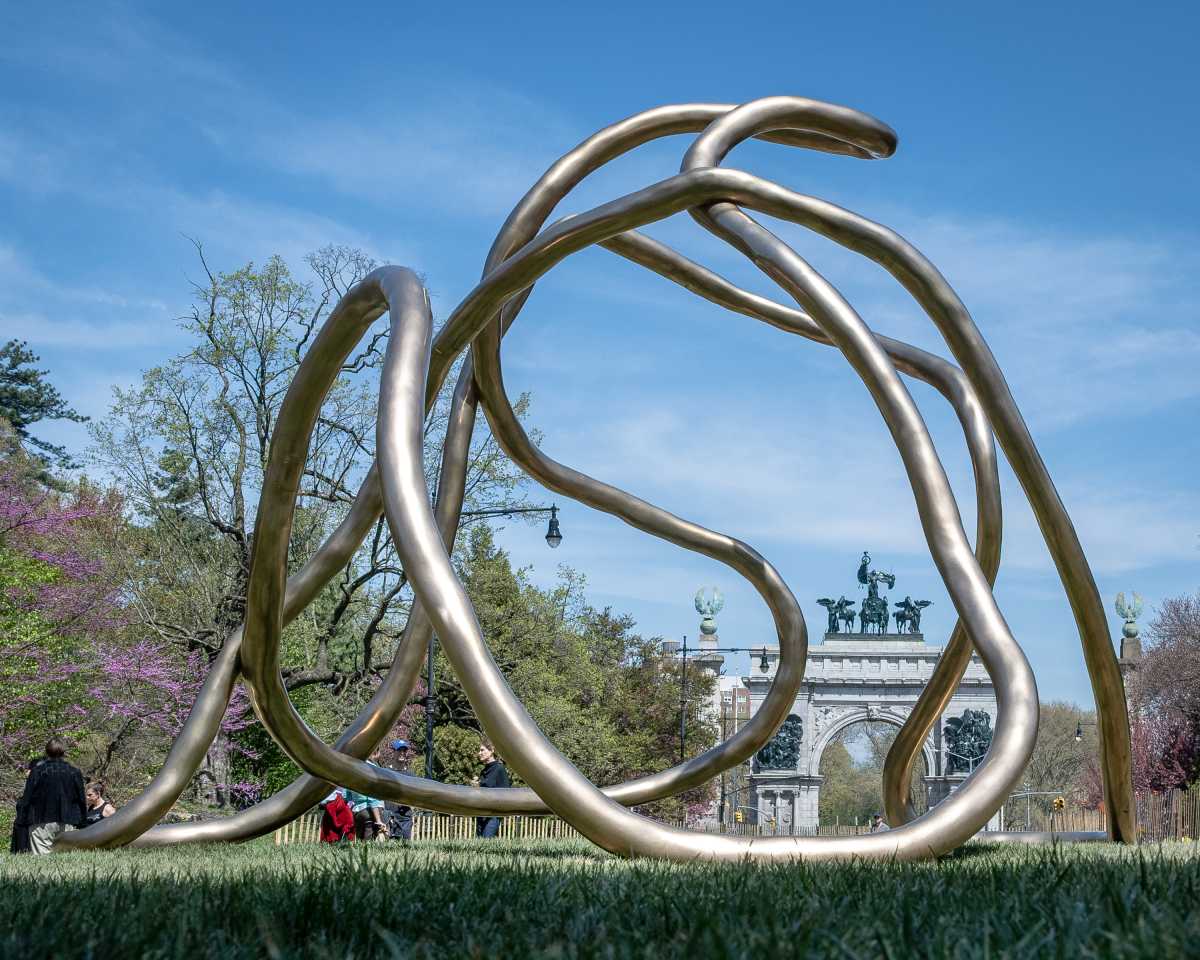
The Women’s March movement is having an identity crisis.
Organizers of the Women’s March on NYC say the group behind the inaugural Washington, D.C., demonstration tried to bully its way into planning the 2019 march in Manhattan.
The Women’s March Alliance (WMA), which organized New York’s marches in 2017 and 2018, currently holds a permit for the third installment, scheduled for Jan. 19, 2019. But a Facebook event purportedly from the "official NYC chapter of [the] Women’s March" has caused confusion over who actually runs the show in New York City.
Katherine Siemionko, founder of the nonprofit WMA, said Women’s March, Inc., board member Linda Sarsour demanded recently that some of her team members be added to the planning committee for the Women’s March on NYC. If not, then Women’s March, Inc., would create its own march, Siemionko said she was told.
Warring factions of the Women’s March movement
Now, Women’s March, Inc., is planning its own march in the city separate from the Women’s March on NYC, the organization said on Wednesday.
“I think it’s unfortunate that Women’s March, Inc., has used bullying and threats to attempt to hijack the inclusive and beautiful Women’s March on NYC,” Siemionko said. “Their rhetoric represents the toxic patriarchy our women’s movement is fighting against. WMA is working to redirect the movement back to its true purpose — gender equality.”
Similar to all of the sister marches, the Women’s March on NYC has been organized independently from Women’s March, Inc., since the inception of the movement in 2016. While Women’s March, Inc., organizers were responsible for the 2017 march in Washington, D.C., and the 2018 event in Las Vegas, the hundreds of sister marches that took place were carried out by local groups within their respective cities.
“A group of volunteers hosted the Women’s March on NYC in 2017. We did it on our own and all of the sister marches were on their own,” Siemionko said.
But the Facebook event has frustrated local organizers by listing the same Jan. 19, 2019, NYC march date with a description that advertises a Women’s March tied to Martin Luther King Jr. Day — hosted by Women’s March, Inc. It’s unclear if the organization has a permit for a demonstration on that date.
Siemionko said she had reached out to Women’s March, Inc., in September to clear the air.
“I sent that event to them, saying, ‘Hey . . . we’ve been running this for two years. We thought we were working together and standing in solidarity, but this is really confusing,’ ” she said. “Their response was that they feel that they have a unique message and that they belong in New York and they want to hold their own march here.”
In a statement provided to amNewYork, Women’s March, Inc., said the WMA stonewalled its attempts to collaborate.
“Women’s March Alliance is not affiliated with our network and has refused to work with our official Women’s March New York chapter leaders, who are women of color, on the 2019 march,” Women’s March, Inc., said.
Women’s March branding both unifies and confuses the public
Vanessa Wruble, one of the founders of the Women’s March on Washington who left in 2017 and started the nonprofit March On, said much of the confusion over who runs the women’s marches boils down to branding.
“We, as the leaders of the D.C. march, did not organize the rest of the country,” she said. “What we did was we organized D.C. and we provided open-source resources, mostly in branding, that could be used for the other marches.”
While the choice to use the same branding across the country helped unify the movement, it also made it appear that the D.C. organizers had control over all of the sister marches, Siemionko said.
“This is our third year doing this as Women’s March Alliance,” she added. “We are grassroots, we are local, we are volunteer-based.”
The branding dispute has now spilled over to the courts, as Women’s March, Inc., attempts to trademark “Women’s March.” WMA, March On and the organizers of sister marches in Los Angeles and Chicago have filed lawsuits in opposition to the trademark application on the basis that the movement’s branding does not belong solely to Women’s March, Inc.
“The fact of the matter is that there are many different Women’s March organizations,” Wruble said.
Different priorities emerge from Women’s March groups
The different factions born out of the inaugural march are split along ideological lines, as well.
Siemionko and Wruble said their organizations have missions different from that of Women’s March, Inc., and both have distanced themselves from the organization’s approach to leadership.
“We believe in the power of local women versus something that comes more top-down in which there are a few people at the top dictating what happens,” Wruble said of March On.
Following a New York Post opinion article that called for a boycott of the 2019 Women’s March over allegations of anti-Semitism, Siemionko said she felt compelled to issue a statement reiterating that the WMA is not affiliated with Women’s March Inc.
"Women’s March, Inc., is not and has never provided funding, coordination, assistance, or support to any other Women’s March event that WMA is aware of. Women’s March, Inc., leadership does not speak for WMA or the Women’s March on NYC," Siemionko said. "In its commitment to equality, WMA partners with multiple Jewish organizations across New York City to lead, plan and organize events, including but not exclusive to, the Women’s March on NYC."
Despite the frustration over who is entitled to what, Siemionko said the positive influence the Women’s March movement has had on society at large is still palpable: "The women’s marches are having an impact and we want to focus on that positive message."


































